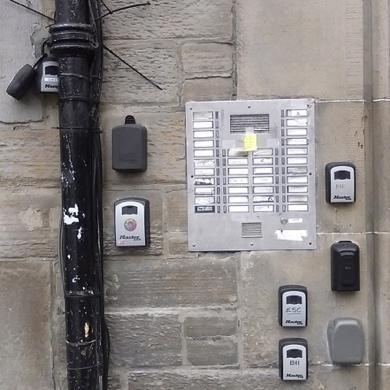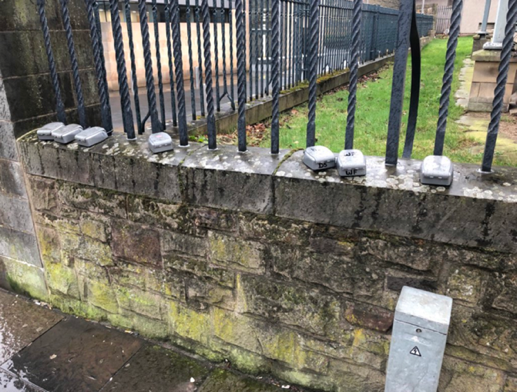Balancing short-term letting with safe, peaceful and affordable homes.
The City of Edinburgh Council and the Scottish Government recognises the steep increase in the level of whole- property short-term letting in Edinburgh, particularly in shared tenement properties. We recognise the difference between people letting out their home to a group during the Festival or occasionally letting out a spare room; and the very different practice of converting homes into commercial lets with no host on-site and a rapid turnover of customers.
Edinburgh residents are concerned and disadvantaged by the extent of unlawful whole-property commercial short-term letting in our communities. Entire-property short-term letting is already subject to planning regulations and there is a clear presumption against this type of activity in tenements. However, only a small percentage of properties have applied for this authorisation. Investigating breaches of planning and enforcement action against unlawful businesses is expensive for the Council, and slow for the residents.
 |  |
Twitter – @PLACEEdinburgh
Email – admin@placeedinburgh.org
Facebook – https://facebook.com/PLACEEdinburgh/
The Recommendations
- A licensing system – We recommend a two-tier licensing system:
- First tier (Home sharing) – All owners can apply for this license to share their home. Most would be eligible assuming basic conditions are met, including health and safety, and a fit and proper owner. This permits reasonable room letting, and the entire property to be short-term let on four separate occasions, with no more than one let per month, and potentially supported by restrictions on a maximum number of days per year.
- Second tier (Commercial or more intensive letting) – Requires more stringent checks, and planning permission.
- A simple on-line system – Owners apply for this license by confirming simple health and safety checks, proof of relevant ownership and insurances.
- Platform and host accountability – It would be illegal for hosts, agencies or platforms to advertise without a valid license number. Large fines are imposed for breaches. Accountability is the key component of successful regulatory schemes.
- Planning permission – Owners who wish to let their property beyond the home sharing allowance must apply for planning permission for a change of use.
- Protect the housing stock, especially the small number of accessible and affordable homes – Edinburgh should reinstate HOU 6 from the 2010 City Plan which recognised the housing crisis and resisted the change of residences to other uses.
- #MaketheShift – Edinburgh should become a signatory to Cities for Adequate Housing: Municipalist Declaration for the Right to Housing and the Right to the City.
The Benefits
- Tourists can check which properties are operating safely and lawfully. Ethical tourism is promoted, which balances the needs of residents and visitors.
- Neighbours can feel safe and relaxed in their homes. The short-term letting allowance is compatible with the extensive case law protecting neighbours’ rights.
- Home sharers can be confident that they are operating legally and are protected. A “revolving door” of lets is prevented, but homesharers can still maximise their income.
- Professional accommodation providers will not have to compete with unlawful businesses who are often able to offer lower prices by avoiding costs of compliance.
- Residents will not compete with investors to find homes. Only appropriate properties are used for short-term letting, protecting the peace and security for neighbours. Main door accessible homes are not incentivised for short-term letting investors.
- City of Edinburgh Council can identify unlawful activity with ease, collect relevant taxes and redirect funds currently being spent on temporary accommodation.
